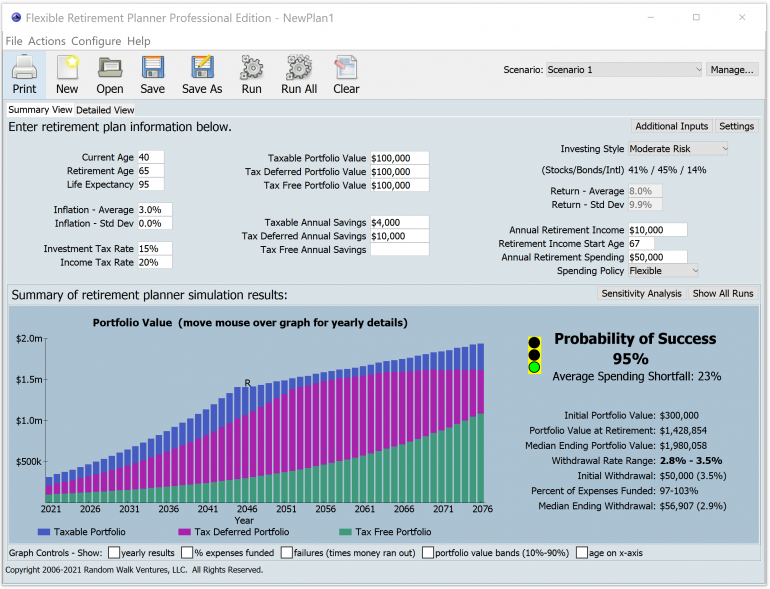

If you plan on retiring early, however, you'll need a lot of money. The AARP Retirement Calculator will help you decide. By the time Tim retires, he’ll have $698,314 in his retirement account. Inspired by this, Tim contributes 6 percent of his salary. Also, Fred’s 401(k) plan matches 50 percent of Tim’s contribution, to a maximum of 6 percent.

īut let’s say Tim, also age 30, works for Ebenezer’s kindly nephew, Fred, who starts him at $40,000 a year but gives a 3 percent annual raise each year.

By age 70, Emily will have $57,004 saved for retirement. Emily earns 5 percent on her money, and, of course, she gets no match on her 401(k) plan. Emily saves 1 percent of her salary because that’s all she can afford. Let’s say Emily, age 30, earns $40,000 a year and her boss, Ebenezer, gives 1 percent annual raises. The AARP Retirement Calculator will help you find the best amount to save to reach your goal. The more you can save, the more you’ll have when you retire. In the long run, that’s the biggest determinant of how much you will have when you retire. You can’t control how long you’ll live in retirement, or what your returns will be. Just don’t overestimate your skill or your luck. The AARP Retirement Calculator will let you adjust your rate of return. Just bear in mind that very few people are skilled investors and that some very wealthy investors could be just a bit lucky, too.
What’s a decent assumption for your rate of return? One approach would be to assume you’ll get a mix of the typical returns from an equal blend of stocks, bonds and CDs - a bit over 6 percent. (This does not mean they will produce the same returns in the next 93 years.). According to Morningstar, the Chicago investment trackers, large-company stocks have gained an average of 9.88 percent a year since 1929, while long-term government bonds have gained 5.54 percent, and Treasury bills, 3.23 percent. Most people invest in a mix of stocks, bonds and ultra-safe short-term investments, such as Treasury bills and bank certificates of deposit (CDs). Make reasonable investment assumptions. Your investments, and their rates of return, play a big part in your retirement portfolio. The AARP Retirement Calculator lets you estimate your time in retirement. If you come from a long-lived family, 100 may be a better guess. To be safe, it’s probably best to assume you’ll live to 90 or more. This means that half live longer and half do not. At 65, for example, the average person can expect to live another 21 years. One way to estimate is the IRS mortality tables. You may live longer than you think. Obviously, your life span in retirement is something you can’t know. The AARP Retirement Calculator lets you adjust the age when you retire to see how you’ll fare at various ages. Although it’s never too late to start saving, it’s a lot easier if you start early. If you start at age 50, you’ll have $186,860. If you start putting $5,000 a year into an IRA at age 30, you’ll have about $669,400 at age 70, assuming you earn 5 percent a year. The earlier you start saving for retirement, the better off you’ll be. The tool bases its answer on three big questions: How long you need to save, how long you’ll need to spend your money and how much you’ll earn when on your money. The AARP Retirement Calculator helps you refine that estimate. If you make $100,000 at retirement, then, you’ll need $1 million in savings. A rule of thumb is that you’ll need 10 times your income at retirement. The tool will help you determine the amount of money you’ll need to retire when - and how - you want. How much should I save for retirement? You can include information about supplemental retirement income (such as a pension or Social Security), consider how long you intend to work and think about your expected lifestyle as a retiree. Simply answer a few questions about your household status, salary and retirement savings, such as an IRA or 401(k). The AARP Retirement Calculator can provide you with a personalized snapshot of what your financial future might look like. What does AARP’s Retirement Calculator do?







 0 kommentar(er)
0 kommentar(er)
